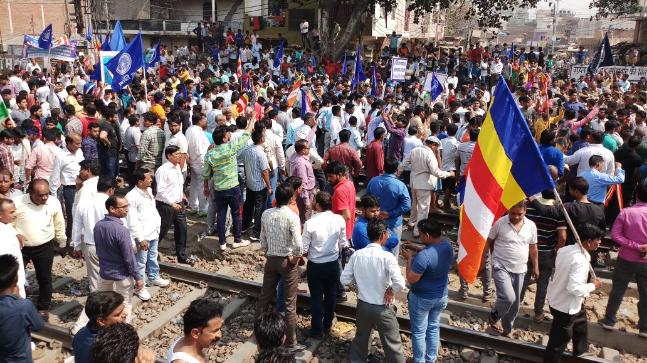When I started writing this blog, I just came back from a weekend trip, carrying an emotional baggage of annoyance along with me. I wanted to write about the one thing that I never get used to in India: the competitiveness within Indian society, at least in North India. I wanted to carry on with the question “Why dear Indians, why do you always want to be first?”.
One thing has become clear for me while writing this blog, apart from the fact that it wasn’t very differentiated: the direction to which this question would have led me, would not have brought me very far in my research on masculinity in India. We do have to look at this phenomenon but from another angle – because maybe people don’t want to be the first, they are conditioned by society to do so.


Nevertheless, let me use my example from the first version of this blog and perhaps we can take something away from my provocative question at the beginning: It’s the one scenario that happens to me on every flight in India so far and you probably know it. The plane has just landed, it is still taxiing but people already jump out of their seats, trying to get their luggage first, only to hit people to be the first one to leave the aircraft. Why am I using this little illustration? Well, because most of the time this person to get up is male. This phenomenon isn’t unknown from other countries, sure thing. But it the regularity and the vehemence with which some men only ever think of their own interest and advantage, taking in account to disturb the cabin crew and the safety of the aircraft, let alone the integrity of fellow passengers. I have never asked these men, why they do it. Let’s see what they could answer?
Perhaps, it is because men in India are under a lot of pressure due to their role within our patriarchal society. Yet, we must be very clear that this role is still the privileged one in the gendered power relations of society.
Nonetheless, the pressure is felt because it is expected from men from the childhood to earn a lot of money to support the whole family and be the future bread-winner. The expectations start early. For example, when I was working in a slum in Mumbai, the parents were sending their sons to private schools, the daughters went to Municipal School or had to stay home to fetch water (male privilege again though). Later, men have to take care of the dadaji and dadiji and provide money for a good (private) education for their children because the government cannot provide it. Further, I have heard that even if the wife is working to relief the financial pressure, men have to earn more than their wives because what would the neighbors think of the husband’s abilities if he has a lower income? Pressure starts from early school days and it seems that being the first in line is what men are conditioned to by society because they have to take care of the whole family in the future. My friends have told me that it is this message that children grew up with: you have to succeed in competing over scarce resources because there live more than one billion people in this country. From a good education to a well-paid job, it’s your job as the husband, or the son to take care.
Just think of the fight for upward mobility as well that is linked to it in some spheres of society. The rhetoric of Indian emergence and economic growth and the desire to be part of it has increased in the last years in India. Do better than your parents and maybe outsmart the others to be the first in line on your way up, this seems to be a very dominant narrative within society. Understandably, a lot of people want to climb up the social ladder to have economical success and a good livelihood.


When we look at the video footage on Bharat Bandh, we can see different masculinities fighting each other, but for what? Is it the pressure to move up the ladder which is leading to the aggression between men? The battle for jobs, the pressure to be the first and the question of identity and belonging – have they anything to do with each other? Is the fight for economic survival one reason why India has seen so much violence over the last years especially between the certain marginalised groups and people from the lower classes? Or are old prejudices and a caste-based social order the reason why already marginalised people get harmed and harassed on the streets?
Let me end this blog on these thoughts. It is the violence we can see on the streets that scares me and we have to talk about it more. That’s the path we have to stay on as violence is inextricably linked to masculinties, so it seems. We have to dig deeper in the weeks to come because pressure isn’t the only answer. It isn’t that simple, unfortunately.
This blog is part of my online research diary on masculinity in India. I will regularly share with you my notes and thoughts on what makes a man a man in India. Please share with me your insights and views. Do you think it’s the right way to go? Or did I just put on my glasses of white privilege?
About the Author


Erik is a graduate student from Berlin, and has engaged in research on masculinity, gender and the urban. He is currently living in Delhi and calls himself a Bombaywala at heart.




